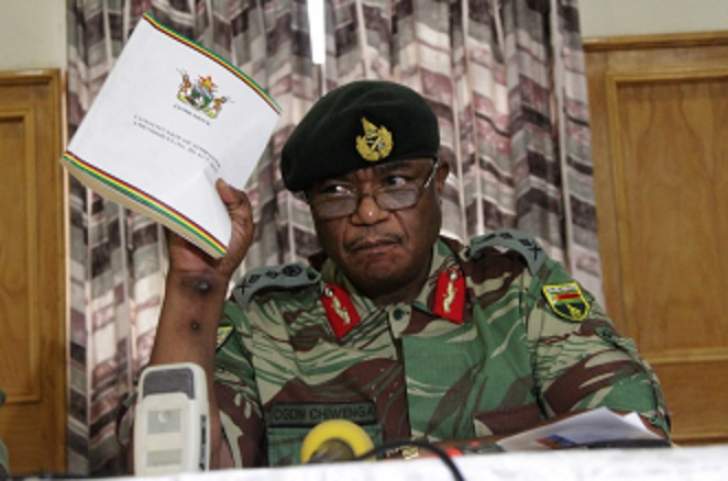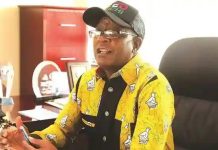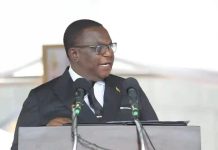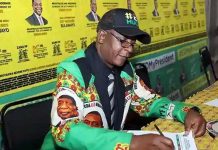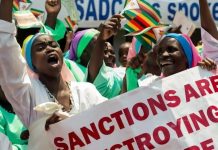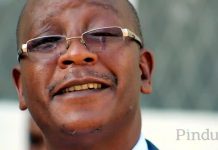PRESIDENT Emmerson Mnangagwa has accelerated an apparent bid to cast out Vice President Constantino Chiwenga from his future plans through spirited attempts to fast-track and discard the presidential running mate clause from the Constitution.
On Friday, the Extraordinary Government Gazette published that the Constitutional Amendment Bill of 2019, will repeal the provision of presidential running mates.
The 2013 Constitution, through Section 92, has a 10-year transitional clause that provides for the joint election of the President and two running mates selected by the Presidential candidate.
In the event of a sitting President’s death, resignation or removal, the first Vice President, according to the current Constitution, will assume office until the expiry of the former President’s term.
However, the removal of the running mate clause will allow a President-elect to appoint his deputies.
The proposed Bill also makes the highly ambitious Chiwenga, an unlikely automatic choice for vice president in the 2023 elections. If passed, Mnangagwa will have discretionary powers to appoint vice presidents of his choice.
Kembo Mohadi is the second Vice President.
Ahead of the expected changes, Mnangagwa has since hinted he will contest the 2023 presidential election while his party has also endorsed him as its presidential candidate in the envisaged poll.
However, the effect of the new Bill is that Mnangagwa is not obligated to choose a running mate. This is in line with strong views within the Mnangagwa faction in Zanu PF, that an elected Vice President is hard to remove than an appointed one.
If the Bill is passed into law, Mnangagwa will have discretionary powers to choose a Vice President of his choice and that candidate will be highly indebted to him.
According to political analysts, the whole plot is an attempt to weaken a determined Chiwenga, seen as eyeing the country’s most coveted job.
Political analysts say the removal of the clause from the Constitution would allow Mnangagwa tame the former military boss’s perceived presidential ambitions.
Zanu PF hawks linked to Mnangagwa also feel the scrapping of the clause will help prevent the creation of parallel centres of power. The faction also claims the concept is not in terms of international best practice.
To weaken Chiwenga’s base and presidential ambitions, Mnangagwa has also been seen on a drive to remove senior officials in both government and Zanu PF, who are considered to be close to Chiwenga, from positions of authority.
Last year, the President retired four army generals who were perceived to be closer to their former boss and appointed them to ambassadorial positions abroad where they are less likely to play any part in the subtle but bruising power battles obtaining.
The retired Major Generals and now ambassadors are; Martin Chedondo, Douglas Nyikayaramba, Anselem Sanyatwe and retired Air Vice-Marshal Shebba Shumbayaonda.
Another former army general, Engelbert Rugeje, was also lured from the barracks and given the influential job of being Zanu PF national commissar.
Before he could fully enjoy the warmth of the seat, he was removed and replaced with a Mnangagwa sympathiser, Victor Matemadanda after only a year at the helm.
Critics say the retired army bosses, being one time subordinates to Chiwenga, were more likely to place their allegiances to their former commander as opposed to Mnangagwa, a civilian.
The Law Society of Zimbabwe has condemned the attempts to remove the running mate clause saying it was undemocratic and disruptive.
“In terms of Section 92 of the Constitution, the presidential candidate chooses running mates who upon election become the national Vice Presidents,” the LSZ said in a recent statement.
“The rationale for these provisions was to introduce non-disruptive succession planning whilst ensuring that in the event of the Vice President taking over office of President, he would be having the people’s mandate.
“This removes the transparency and democratic process sought to be achieved in relation to the assumption of these important offices. In addition, the Vice President’s tenure will be at the pleasure of the President. An amendment is expected to cure a problem or mischief. This is not apparent in the present case,” the lawyers said.
However, defending the Bill, Justice Minister Ziyambi Ziyambi, a top Mnangagwa ally, has said there was no need of creating two centres of power in government.
“You do not want to create two centres of power; that is something we need to avoid at all costs,” said Ziyambi.
“Naturally, the head of the executive is the President; what then does it mean when we have three people who are elected by the masses into the executive, who will be more powerful? It is another issue that needs debate, and I think we need to take it out.”

